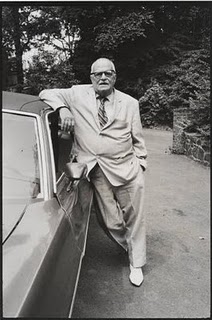
A quick thought from the father figure himself, Paul Zahl:
 In Wilder’s book The Woman Of Andros, a wise man is observing a wise priest and thinks to himself, “People like that have some secret about living. Why don’t they tell it to us outright, instead of wrapping it up in mystery and ceremonial?”
In Wilder’s book The Woman Of Andros, a wise man is observing a wise priest and thinks to himself, “People like that have some secret about living. Why don’t they tell it to us outright, instead of wrapping it up in mystery and ceremonial?”
To me (PZ) this sums up why the Christian institution is flailing around these days, clueless and almost everywhere out of touch with the inward sufferings of people. It is as if we have something important to say but wrap it in packages that are hard to open.
Wilder goes on to say, in a journal entry, that in order for a religious revival to take place in his America of the Great Depression, there will have to be “new persuasive words for defaced or degraded ones”. In my opinion this is what my ministry has been about, and it is what Mockingbird is about.

COMMENTS
2 responses to “PZ on Thornton Wilder”
Leave a Reply













An interesting observation but one which, to me at least, seems to betray a certain “missing-the-boat” if you will.
There is no singular “Christian Institution” extant in the world…there never has been. Sure, from early on Orthodoxy and Rome have each extended the illusion that they were/are the sole “The Christian Institution” but even in the early days there were other flavors of Christianity, other ways of being a follower of Christ…ways that persist and enrich the body to this day. Today, after the Great Schism and the Great Reformation, (and the Great Reaction) after the continuance of organic (cellular) fission in every Church and denomination, rather than statically existing as a monolithic institution which must make the package increasingly hard to open (e.g.: the hardening dogmatic statements from R.C. bishops in the election cycle just past)Christianity has flourished to a point that it can, through its various and manifold elements, at last truly be “in touch with the inward sufferings of people” across the spectrum of human experience. It’s just that no one element can, in the first case, be in touch with the sufferings of all or, in the second, on its own, understand how it might contribute to or even create that suffering. The use of the quote from Wilder’s journal is an apt instance of the latter. It suggests a vision of the “Christian Institution” offering words (of comfort, redemption?) to those it deems defaced or degraded or fundamentally disordered. What a surprise that those so defined vehemently reject such outside definition and indeed insist that they are followers of Christ and are living the revival others think they are in want of or are perfectly at home with their own religious/spiritual path thank-you-very-much.
We get so enamored of the mystery of our own way that we fail to see that equal mystery is found by others on their way. Chesterton, Lewis, Williams plumb the mystery in their own way but it’s not the only way; Eliot and Auden came at it differently and none of them would have claimed to have grasped the whole. The Nicene, Ante-Nicene and Post Nicene Fathers are frequently paths to the mystery but so in their rather distinct way are those who contributed to what would become the Philokalia. St. Francis of Assisi and the Persian poet Rumi are kindred but widely divergent spirits. The homeless and the poor have their own points of access to mystery that the Bourgeois cannot know. Third world and Developed world, Gay and Straight, Aboriginal and “Modern”,–choose your contrasts–at last the church is big enough (thank God) to allow inherent dignity to be recognized and welcomed by at least some portion of the body…and not universally see the “other” and the stranger as defaced or degraded simply because they don’t “look” or live exactly like us.
I don’t think “Paul” has read the Wilder quote right.
Wilder is not referring there to defaced or degraded people, but rather, to defaced or degraded words. He is saying that religious words have been ‘defaced’ by having been used too generically; and ‘degraded’ by having been used by speakers who used them in a mean spirit.
The sentence is not about defaced or degraded persons but rather about defaced and degraded words.
Maybe the mistake was mine in not giving the full context of the sentence.
The reference is on p. 239 of the 2006 HarperTorchBooks Perennial edition of “The Cabala/The Woman of Andros”.